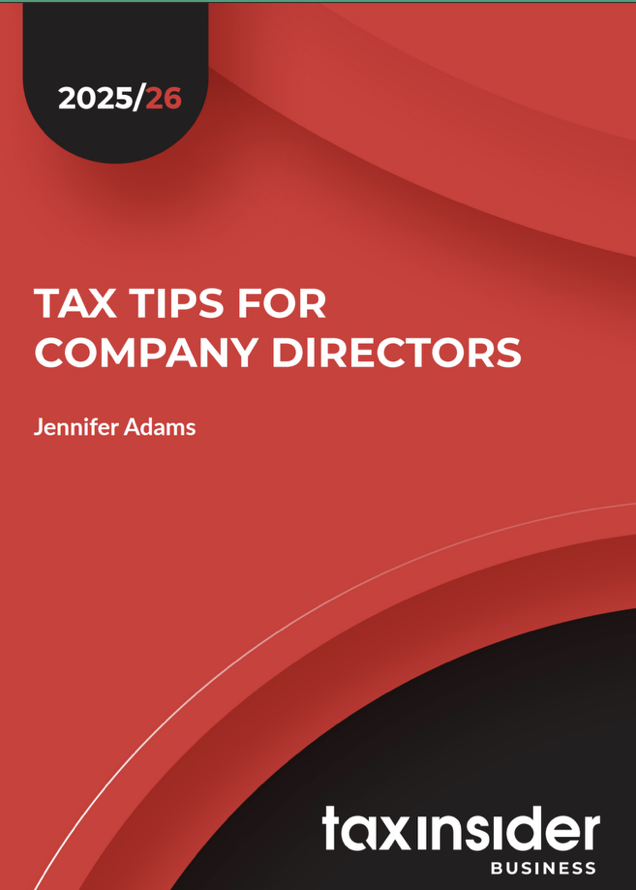In this excerpt from the report 'Tax Tips for Company Directors', Jennifer Adams gives some tips on how to pay a salary to a family member.
One of the more efficient methods of reducing a company's tax bill and increasing the amount of cash withdrawn at the same time is by paying a salary to a member of the director’s family. For example, such members could be the director’s spouse, civil partner or children at university.
Practical point
Other non-tax reasons for employing a spouse or civil partner include ensuring that the year counts for NIC purposes towards the employee’s state pension entitlement. An employee's salary will also count as 'relevant earnings' to enable private pension contributions.
Tax trap – 'Settlements’ legislation
Care needs to be taken so the payments do not fall foul of what are termed the 'settlement’ rules. The question here is whether by allowing the family member income from the business, they are earning a PAYE salary or whether the owner-director has created a settlement and ‘retained an interest’ in the business.
The 'settlements legislation' is a piece of tax legislation available to HMRC to counter income being diverted from directors to family members who pay tax at a lower marginal rate than the director (termed 'income splitting').
'Settlement' is usually a term used when creating a trust. However, in tax law, the same word has a much wider meaning, being ‘any disposition, trust, covenant, agreement, arrangement or transfer of assets’; therefore, a 'settlement' could apply in any non-trust situation.
Should an individual create a 'settlement' but retain ‘an interest’, then under this legislation, the income of that settlement is treated as still belonging to the settlor (in this instance, the director). ‘Retaining an interest’ includes a situation where the settlor’s family member can benefit. On its own, this settlement would prevent tax savings by making gifts of income-producing assets to family members paying lower tax rates. However, an ‘outright gift’ is not caught under these rules provided that the gift carries a right to the whole income and is not ‘wholly or substantially a right to income’.
In the past, HMRC has investigated a number of arrangements made under the 'settlement' rules with particular reference to situations whereby the spouse was also a director who owned shares in the company but received substantial dividends that would not be the allocation in comparison with another shareholder with the same number and type of shares. However, only four cases have reached the courts to date, with HMRC winning three and partially winning the fourth which was the now infamous 'Arctic Systems' case (Jones v Garnett [2007] UKHL 35). HMRC won the 'settlement argument' but lost the case because the judge ruled that, although the shareholding arrangements constituted a 'settlement', they were exempted under the outright gifts clause spouse to spouse. Therefore, so long as a spouse or civil partner is given ordinary shares in a company (carrying the normal full range of rights), any dividends paid on the shares are treated as their income, and the settlements legislation does not apply.
Although the 'settlement' rules remain available, the last case brought is over 18 years old, HMRC having decided to focus on other priorities.
How much to pay
To qualify as a deduction against the company’s tax on its profits, the family member needs to be ‘really’ earning the amount paid to them. The amount must be in return for the work undertaken. If no work or little work is undertaken, HMRC could refuse the company a tax deduction and treat the payment as a distribution to the director. Therefore, paying a spouse or civil partner, say, £50,000 a year for one day’s work a week might be challenged by HMRC and, if upheld, would result in the expense being disallowed as not being incurred 'wholly and exclusively'. The salary must be reasonable for the work undertaken – a salary greater than would be paid to another non-family member to do the work could be investigated by HMRC. By appointing the family member as a director, a small salary could be paid, even if the actual work undertaken is relatively little.
Note: the considerations as to the amount of salary to give the family member are the same as when calculating the 'optimal' salary for a director (see section 2.5, ‘Optimal’ salary amount). Although NIC is not payable by the employee on a salary of £12,570 for 2025/26, the employer is liable for NIC on any amount over £5,000 if the employment allowance is not available (i.e., £1,135.50). However, as corporation tax relief is available on the whole amount of salary plus employer's NIC, the corporation tax deduction outweighs the amount of NIC due such that for 2025/26, the 'optimal’ salary is £12,570 (see table under section 2.5, 'Optimal' salary amount).
Practical points
- Paying the 'optimal' salary amount of £12,570 also means that the family member has a year’s NIC contributions towards their state pension without having to pay any employee's NIC, although this could also be achieved if a salary equal to the lower earnings limit of £125 per week (£6,500 a year) is taken.
- The salary should be paid into the family member’s personal bank account and recorded in the accounts as payment to another employee; the company will also need to comply with the Real Time Information requirements of a payroll scheme.
- Should the family member also be a shareholder, there will also be the option of withdrawing more from the company if needed.




